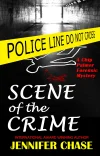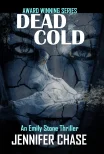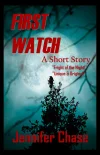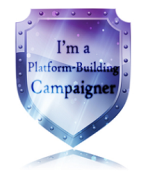When I began writing the Emily Stone Thriller Series, I didn’t stop to think about the emotions that I would try to engage from readers. In fact, originally, I didn’t even think about an entire series, but I pushed forward and didn’t look back.
In my series, I write about a woman driven by her desire (or compulsion, for lack of a better word) to track down serial killers and child abductors, alone and covertly, because the police couldn’t or wouldn’t do the job. Emily Stone fills the need where politics, budget, and inexperience sometimes overflows into criminal investigations from the law enforcement perspective.
I bet I have you thinking now! Some of you may be thinking, “cool” (excited) “yeah, right” (annoyed) “scary” (frightened) “I wonder what’s going to happen next?” (eager) “sounds like a thriller” (anticipating) “why would this woman do this?” (suspicious or angry) and the list goes on…
Books elicit emotions from potential readers, even before a person cracks open the book or clicks the e-reader next page button, all by reading the synopsis or hearing about it.
Readers want to experience a challenge or struggle, be touched in some way, or escape to a far, far away place. I know that I do!
How do writers plug into that reader emotion?
Emotion is a particular feeling that characterizes a natural state of mind. Something to ponder I suppose.
Here are some things I have learned along the way with four published novels and a thing or two that my high school English teacher instilled in me:
- Write characters worth caring about and some characters you love to hate – plain and simple. Dig into your characters psyches and create the delicate layers that make up a particular individual.
- Write scenes, don’t tell us about them. Readers want to feel, smell, and taste what’s going on. Writers are creative and have a story to tell, so create a scene!
- Move the story along… I love a book that takes off like a carnival ride with ups and down, and then a BIG free fall. After all, readers pay the price for a ticket and they are expecting a thrilling ride.
- Don’t hold back or hesitate with the story. This is a biggie for me. I have a tendency to hold back in my writing, but not anymore. I let my characters guide me and sometimes the outcome even surprises me.
- Have plenty of surprises! It’s not things that happen out of thin air; but rather, surprise the reader.
- Keep details straight and to the point. I’m not saying write like a boring police report, but keep it direct and moving along.
- Set up scenes to help evoke emotions with readers. My latest novel, Dark Mind, is set on the island of Kauai and it immediately evokes emotions of calm, relaxation, and beauty. BAM! Then I put a serial killer into the mix.
What emotions do you experience that makes a great novel?
* * *




































I don’t outline a story I am writing. I take a concept and begin typing. I find myself being becoming excited and enthused to get into the character and scene. If I get bored or unenthused it’s time to take a break and a new approach. I know I’m on the right track when I get anxious to see how the story is going to turn out.
A question for you? Do you picture certain actors playing the characters in your story? Do you authenticate the action by seeing it as a movie?
LikeLike
I like to read about the kind of characters I write. Ones where we get inside their head and a sense of who they are and then BAM put them in a situation where I am like “Oh, no, that didn’t just happen and what’s going to happen to them!” Give me a character that is likeable and flawed and hurting in some way – and then take everything away they care about and take me a on a ride where they try to get it back. I want to follow!
LikeLike
Great post. Lots of insight. If we don’t strike emotion within readers, we haven’t written a book. We may have 70,000 words scattered on paper or a Kindle screen, but we don’t have a book.
LikeLike
Great article, Jennifer, and right on point. I’m learning all these lessons within editing my first novel, and they are all crucial to success. The biggest tendency is to tell, rather than show, and that’s a death knell for a book. Thanks for sharing 🙂
LikeLike